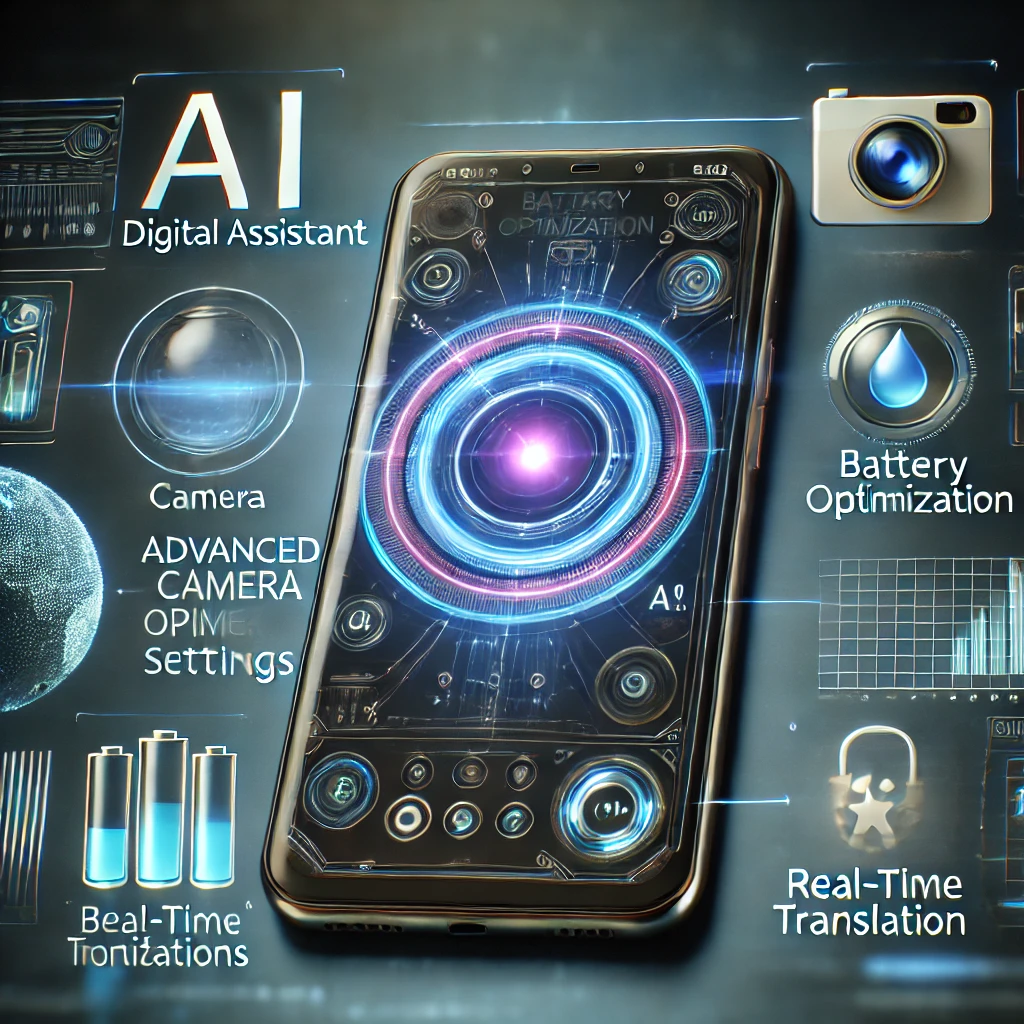
Introduction
Artificial Intelligence (AI) has revolutionized various industries, and one of its most impactful applications is in smartphones. AI-powered smartphones have transformed the way people interact with technology, offering smarter, more personalized, and efficient user experiences. From virtual assistants to advanced camera features, AI enhances the functionality of modern smartphones, making them indispensable in daily life.
AI in Smartphones: Key Applications
1. Virtual Assistants
One of the most noticeable AI applications in smartphones is virtual assistants like Apple’s Siri, Google Assistant, and Samsung’s Bixby. These AI-driven assistants utilize Natural Language Processing (NLP) to understand and respond to user queries, perform tasks such as setting reminders, sending messages, and providing real-time information.
2. AI in Photography and Camera Enhancements
Modern smartphones leverage AI to improve photography quality. AI algorithms enhance image processing by optimizing lighting, detecting objects, and applying effects like portrait mode and night mode. Facial recognition and scene detection further refine image capture, providing professional-level photography to everyday users.
3. Personalized User Experience
AI enables smartphones to learn user behavior and preferences over time, allowing for a highly personalized experience. Features like adaptive battery management, predictive text input, and smart app suggestions are driven by AI, making interactions more intuitive and efficient.
4. Security and Privacy
AI-powered security features have significantly improved smartphone security. Facial recognition, fingerprint scanning, and voice recognition ensure secure access to devices. Additionally, AI-driven threat detection systems help identify and prevent cyber threats, enhancing data privacy.
5. AI in Battery Optimization
AI plays a crucial role in improving battery life. Smartphones use AI to analyze user habits and adjust power consumption accordingly. Features such as adaptive brightness, app hibernation, and smart charging contribute to longer battery performance.
6. AI in Communication and Translation
AI-driven real-time translation tools and smart communication applications have made language barriers less significant. Features like live translation, automated captions, and enhanced voice recognition help users communicate effortlessly across different languages.
Future of AI in Smartphones
The integration of AI in smartphones is expected to advance further, with innovations such as enhanced augmented reality (AR), improved AI-powered assistants, and more intelligent automation features. AI will continue to refine user experiences, offering smarter, faster, and more adaptive smartphone functionalities.
Conclusion
Artificial Intelligence has become a fundamental component of modern smartphones, significantly enhancing their capabilities. With continuous advancements, AI will drive even more intelligent, efficient, and secure smartphone experiences, making these devices an essential part of our daily lives.



